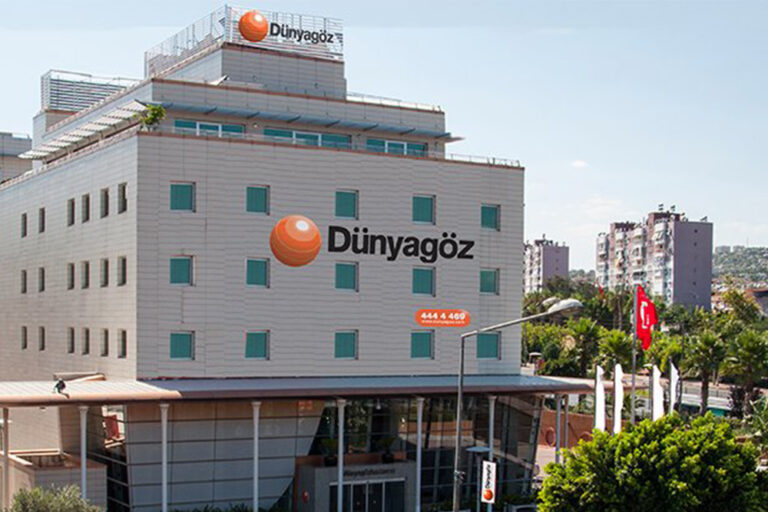Dünyagöz Hospitals Group
Calculate Your Cost / Price
Initiating its services in 1996, Dünyagöz Hospitals Group brings solutions to all kinds of problems related to ocular and periocular health with 500 of different treatment methods provided in all eye-related branches. Beginning a new era with branch hospital services in Turkey, Dünyagöz Hospitals Group provides its health services both domestically and internationally at a total of 29 different locations with 8000 policlinics and 1000 surgical operations.
Dünyagöz has become the medical reference center of the world within a short time, with technology, its medical staff of 300 members consisting of lecturers and specialists, and its staff of 3,500 employees.
Dünyagöz Hospitals Group offers eye-care services with 21 branches in 12 provinces throughout Turkey’s central Anatolia, it’s north, south and west, and also provides services in 8 different international locations in Frankfurt and Köln, Germany; in Tbilisi, Georgia; in Baku, Azerbaijan; in Bishkek, Kyrgyzstan; in Sarajevo, Bosnia-Herzegovina and Pristina, Kosovo, as well as in Bulgaria and Romania. Intending to expand its operations to an even wider region with 2023 while maintaining the pace of its investments and leading the health tourism activities in Turkey, the Group offers services for approximately 110,000 patients a year from 160 foreign countries around the world.
FQ About Gastric Balloon Clinic in Antalya / Turkey
Pages
-
£ 1580£ 1450GASTRIC BALLOON PROCEDURE PACKAGE
Give a call to learn more about what’s included and to come up with a tailored plan if you need unique accommodations that are not listed below.
- Airport
- Hotel
- Hospital transfer
- The balloon is placed via endoscopy, the procedure takes 15-20 minutes and you are discharged after 2-3 hours. It is enough to stay here for 1 night.
- Blood samples & x-rays
- 5 year follow up
-
£ 2750£ 2550GASTRIC SLEEVE PACKAGE
GASTRIC SLEEVE PACKAGE COST TURKEY / ANTALYA
Give a call to learn more about what’s included and to come up with a tailored plan if you need unique accommodations that are not listed below.- Airport
- Hotel
- Hospital transfer
- 4 day stay at hospital
- Blood samples & x-rays
- 5 year follow up
-
£ 3100£ 2900MINI GASTRIC BYPASS PACKAGE
MINI GASTRIC BYPASS PACKAGE TURKEY
Give a call to learn more about what’s included and to come up with a tailored plan if you need unique accommodations that are not listed below.- Airport
- Hotel
- Hospital transfer
- 4 day stay at hospital
- Blood samples & x-rays
- 5 year follow up













